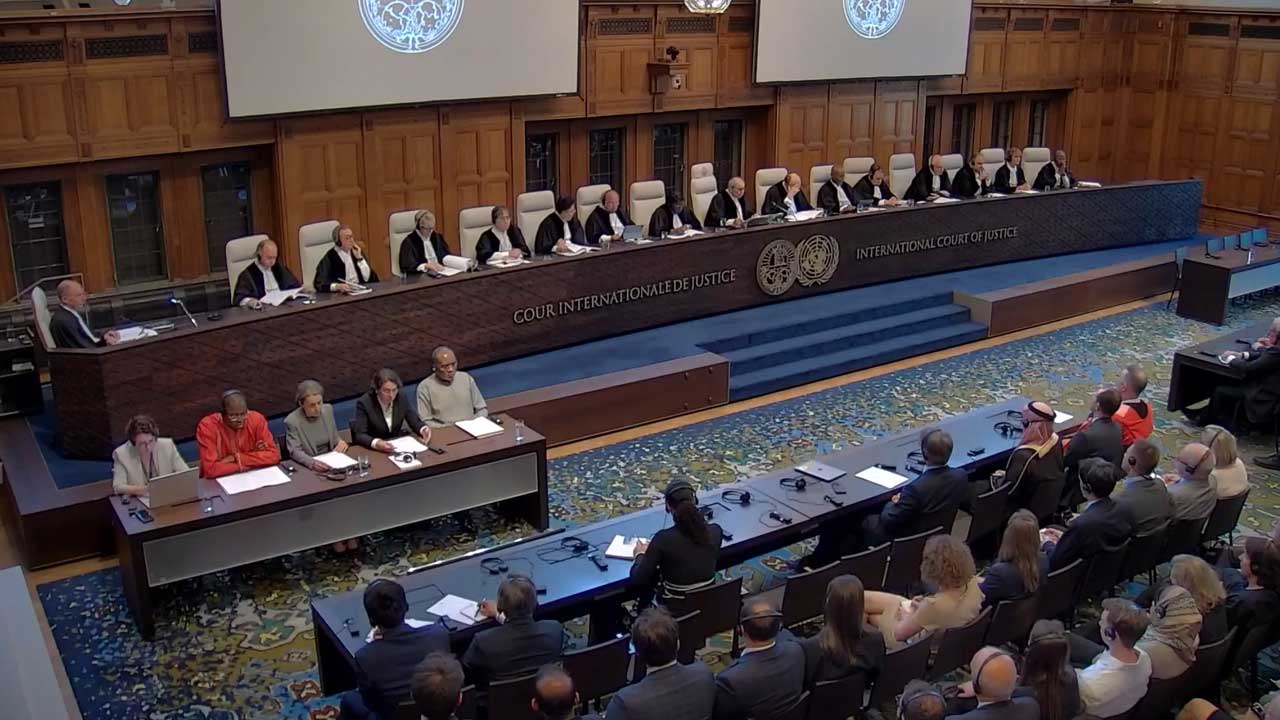I joined Libertarian Institute Director Scott Horton on his show to discuss the International Court of Justice’s recent ruling that Israel’s persistent occupation of Palestinian territory for 57 years now violates international law and must end immediately.
I had explained the context and summarized the ICJ’s judgment in my July 20 article, “ICJ Declares Israel’s Occupation Illegal”, which is a great short primer to read before listening to this episode of Scott’s show.
During our conversation, we delved into numerous aspects of the ruling in considerably greater detail, and we also discussed numerous points that I didn’t raise the article, so be sure to listen!
Bullet-Point Summary
Here are specific points we discussed about the significance of the ICJ’s ruling:
- Why we can recognize the importance of the ICJ’s ruling and application of international law despite opposing statehood itself and the corrupt global order, and notwithstanding how the United Nations (UN) itself played a major role in creating the conflict in the first place (as documented in detail in Obstacle to Peace).
- How the ICJ’s ruling essentially repudiates the entire framework for the US-led so-called “peace process”.
- Why the ICJ rejected Israel’s objection that the court has no jurisdiction on the grounds that the conflict is a bilateral dispute between Israelis and Palestinians and doesn’t involve the international community.
- How the ICJ’s new ruling goes beyond its 2004 ruling that the settlement regime and the annexation wall Israel was constructing in the West Bank were illegal.
- How Israel’s occupation of Palestinian territories began in 1967, and how Israel’s unilateral and invalid interpretation of UN Security Council Resolution 242 calling on Israel to withdraw was accepted by the US as the framework for the “peace process”.
- How the two-state solution is premised on the applicability of international law to the conflict, whereas the “peace process” was premised on a rejection of the applicability of international law.
- How Israel has perpetually violated UN Security Council resolutions in contravention to its obligations as a member of the organization.
- How the ICJ detailed Israel’s numerous violations of international law with many varied aspects of its occupation and, moreover, ruled that the occupation itself is illegal and that Israel must therefore immediately end its occupation regime.
- How people living under a belligerent occupation have a recognized right under international law to take up arms against their oppressors.
- How the ICJ affirmed that the Palestinians’ right to self-determination is inalienable and therefore that Israel may not place conditions on their exercise of that right as it has done perpetually for over 57 years.
- Why the ruling is significant even though the ICJ lacks any enforcement authority.
- Why there is no government that is going to bring peace in the Middle East, it is up to us.
- What the first step must be for us to bring the conflict to an end.
- How the ICJ ruling really reflects the will of the international community, which is unfortunately limited in its ability to bring the conflict to an end by the whole framework the UN organization, where the US habitually uses its veto power in the Security Council to protect Israel from international censure and accountability for its crimes against the Palestinians.
- How US government officials could be prosecuted by the International Criminal Court (ICC), a separate non-UN entity, for their complicity in supporting Israel’s violations of Palestinians’ human rights, including Israel’s ongoing genocide in Gaza.
- Why the action of moving the US government’s Israel embassy from Tel Aviv to Jerusalem under the administration of President Donald Trump violated international law.
- How Trump’s killing of the so-called “peace process” was actually a good thing, despite his malevolent intentions toward the Palestinians.
- How public opposition to Israel’s genocide has at least placed a certain level of restraint on the Biden administration’s support for this crime against humanity, indicating the importance of solving this conflict from the bottom up: again, it is up to us.
- How the ICJ also implicitly affirmed that Israel’s discriminatory policies with its occupation regime constitute the crime of apartheid.
- How it isn’t true that Arab citizens of Israel have equal rights.
- Why it is so utterly perverse and delusional to describe the state of Israel as a “democracy”.
- How the Palestine Mandate violated the League of Nations’ own charter.
- How Christian Zionism is the elephant in the room in terms of explaining the US policy of supporting Israel’s systematic violation of Palestinians’ fundamental human rights.
If you find our discussion informative, please consider supporting the Libertarian Institute!
































